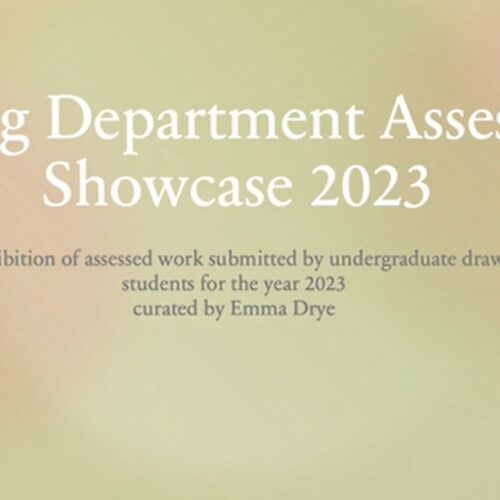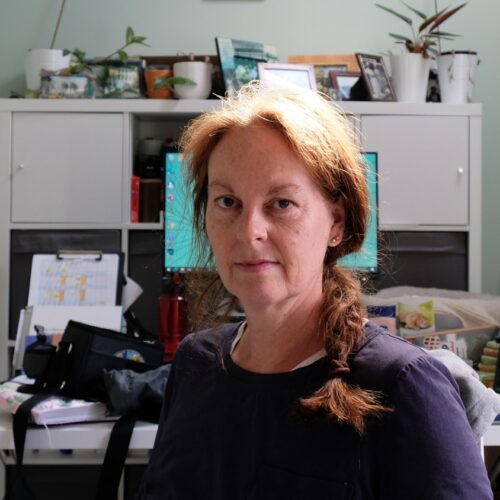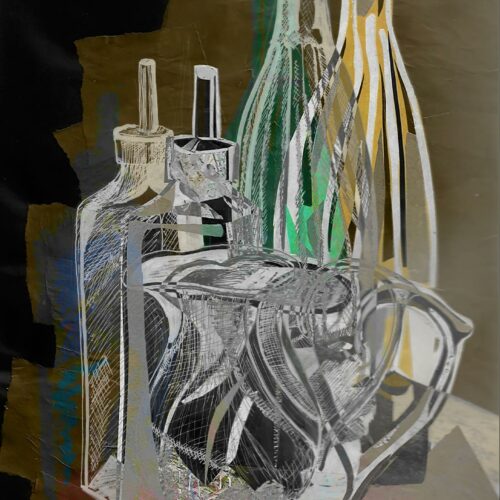
Moving up a level

The transition to studying at a higher level is one that some students take to like the proverbial duck to water. For others, it’s more of a challenge. What often gets forgotten when we talk about transition are the changes demanded of students as they move from Level 1 to Level 2 and from Level 2 to Level 3.
Following the March assessment event we contacted some students who have just completed their first unit(s) on Level 2 and Level 3.
Here are some thoughts on the L2/L3 transition from Photography student Stan Dickinson.
“I’ve been studying with OCA for almost 9 years and have ‘come through the ranks’ – in the sense of personal development, of ‘academic’ development and of OCA’s own development during that time. I’m confining these notes to the experience of moving from L2 to L3 in the last 2 years but, in passing, make the observation that students coming through the L1 and L2 courses that the college now offers will be better prepared for that transition than those who have gone before. (Not playing for the ‘sympathy vote’ here, just intending to reassure those currently working at those levels – and give a ‘big-up’ to what has been achieved in OCA.)
‘Confidence’ is a word that seems important as I look back over the last two years, and it applies even to the early stages of the transition from L2 to L3. But it’s having the confidence to realise that you don’t know but that that’s OK and normal. If you enter L3 thinking that you know just what you’re going to do (which I didn’t) then I have a feeling that you’re either going to change your mind or not get the best out of it. If you’ve made it through L1 and L2, you can be confident that you have the ability to cope, but it’s also desirable, I think, to have the confidence to step into the unknown. There is, actually, plenty of time and opportunity within, say, the Body of Work module to try things out, to take risks, to experiment with ideas; to make work without knowing exactly where it’s going to take you. If you end up back where you originally thought you’d be, then you’ll do so with greater confidence and self-knowledge; but there’s a very good chance you’ll find yourself in a new, even more interesting place.
To an extent, this applies to the research aspect as well. I had done quite a lot of contextual reading, right through L1 and L2, but rarely in any structured way (which will be different for the current L1 and L2 students, who will have more structure to this side of their studies). I did an enormous amount of reading in the first few months at L3 – probably more than I needed and sometimes re-reading what I’d looked at before. I was partly playing catch-up, but it’s also related to idea of experimentation and exploration. Once again, there is time to read around, to follow ideas through, to go off on the occasional tangent. Don’t expect to understand immediately or to know at the start where it’s taking you; allow a contextual space to develop alongside the making of work and for the two to begin to relate. In my case, articulating the connection between the two modules was one of the trickiest areas – even though I knew it was there. But it came together – allow the time and space for this to happen – have the confidence to keep working through it.
Absolutely crucial, though, is your relationship with and communication with your tutor. They are there to support you as you find your own way through. Keep them informed; ask their opinion (you don’t necessarily have to agree!); share your concerns when you have them (and your delights when things go right!). Your tutor won’t tell you what to do at L3 but they will try and make sure you don’t go dangerously ‘off piste’ – encouraging your exploration and experimentation but carefully guiding you where necessary. Of course, that can’t be achieved without the communication and the relationship – you need to play your part in that (without, of course, overburdening the tutor).
Much is often made about ‘finding your voice’. In my own view/experience, it’s something that you allow to emerge/develop rather than something you specifically look for. In fact, I’d go so far as to say that you probably won’t find it if you set out on a specific search! Back to the word confidence – trust yourself; trust your tutor; trust the process; challenge yourself; explore the boundaries; reflect on what you find and what it means to you; share your reflections; allow the contextual research to filter through; make work – whatever is your ‘voice’ will emerge. Of course, all that applies to L1 and L2 as well. For some people that ‘voice’ will already be emerging/developing before they get to L3. The difference at L3, I would suggest, is the development of the confidence to articulate that voice – both in the making of the work and in talking about it. I feel much more confident about presenting my work to others now that I have completed the first two L3 modules – essential for the move into ‘Sustaining Your Practice’, of course.
One final point – something that is highly desirable for OCA students – find a way to build relationships with other students with whom you can discuss work, progress, concerns etc. Many of my own ‘peers’ in Photography have been contacts for many years, through Flickr, student forums, study visits, student-organised events, and latterly, through a regular Google Hangout group that we have organised via the OCA Student site. I could probably have benefited from getting the latter going sooner in my L3 – so my advice to others is, find a way. We have had participants in both Europe and North America, as well as all over the UK, so geographic isolation doesn’t have to be an issue. ‘Just do it’ – the benefits will soon emerge.”
Visit Stan’s blogs
Body of Work
Sustaining Your Practice

OCA Painting student Averil Wooton was recently assessed on her first Level 3 units;
“Having been around a long time I wasn’t obliged to do courses in any particular order. I began studying before the degree structure was in place.
As I wanted to paint, I did the Level 1 Painting course & two Level 2 painting courses one after the other. Only then did I decide to go for a degree and I had to fill in my missing Level 1 courses.
This was not a good idea: I jumped from Level 1 to Level 3. Moreover, what I had done in Level 2, at least 5 years earlier, was by no means adequate preparation for what is required at Level 3 today – not so much in the practical work but in the approach & learning to think like a Contemporary artist.
As a result, I found it very hard going and don’t think I’m really there yet.
So, I’d say to students – don’t hang about between courses – try to get through them as fast as you reasonably can so you don’t find that at the end the step up is greater than it needs to be”

Vicky Speirs, also a Level 3 Painting student says;
“My experience is that Level 3 has been very demanding compared with previous levels and you are expected to dedicate a large portion of time to it. I have to say that it has not been easy working full time and trying to keep up the momentum required of Level 3. My advice would be not to rush into making a decision about your chosen topic for Major Project but to spend time thinking about how it’s going to roll out so that you have good plan to work with.”

OCA Photography student Anna Goodchild moved up from Level 1 to Level 2.
“The only stretch was in the time I spent researching various photographers which I found really exciting at first but by Part 3, I could not wait to get to the end – the reading seemed endless.
Although I already have an MA and so should have pretty sound academic writing skills, I found that I was getting emotionally involved in the subjects of my Unit 4 extended research to such an extent that it was just an irrational, emotional rant. The reworked essay was light years away from the original & here I must give credit to my tutor for having the patience to guide me through it. What also helped, after I had re-written the essay, was to get great appreciation of my essay from one of the internationally famous photographers I had referenced. I know I shouldn’t need external approval to give my work worth, but it was great!
I also discovered that, on the whole, photographers, no matter how well known they are, were very generous with their time when I explained what I was doing. Having their contributions made my research so much deeper and relevant. I am still developing my own voice – we have so many voices in photography with more images than words hitting us every day, that it is difficult to sort out if it’s the still voices which are more meaningful or the loud ones.

Before I started the course (L2 Documentary Photography) I had been stunned by a very low mark in L1: over the 3 units I had gone down in the assessments & I did not know if this was the right course for me. I had started it because, following on from my MA thesis, I wanted to research the role of photography in the development of iconic structures in urban regeneration projects. I was very fortunate in that my ‘documentary’ tutor had just the right balance of practical and theoretical expertise I needed to restore my self-confidence and point me in the right direction. I cannot emphasise enough the positive role that fellow students have in this distance learning experience in which students are isolated. After the assessment, my expectations are in limbo: I cannot decide which unit to do! My only certainty is knowing that the tutor I have is vital to my success or failure regardless of what I do. I know that Level 3 is totally self-directed but I need a good guide to get me there.
My advice to others would be to keep in touch with fellow students, not necessarily on the same course as you are just to see what they are reading & how they are coping. When they read your work, their insights can be very valuable. I often find the OCA weekender bulletin useful in catching up with people doing other things – music, textiles or painting.”
Visit Anna’s blog for Documentary
For students concerned about moving up a level OCA have produced two guides to help inform you about the transition and the expectation of studying at a higher level;
Level guide_HE4:5
Level guide_HE5:6
Image Credits: Stan Dickinson; ‘Two grades of bromide paper’ and ‘Textbook project’
Averil Wooton
Vicky Speirs; ‘Drifting’ and ‘Going Bananas (Wish you were here)’
Anna Goodchild
#WeAreOCA






Found this very interesting. Coming to the end of L1 and already getting slightly panicked at the step up to the next level. This helps to put things into context.
Nicely put Stan and good to see your work and Anna’s getting some exposure, both well deserved. I would say that Stan’s final point has been pivotal for me; building networks, seeking opinion and generally finding support.
Really useful post, as I move from level 1 to 2. Lots of interesting advice and I am finding the email groups very good for building relationships. Completely blown away by the book, Stan!
This Stan I can identify with. I too have ‘come through the ranks’ and have been studying with OCA for 9+ years. In that time the courses have changed for the better, and looking at the work of the L1’s and L2’s I see they are much more prepared for the transition than I ever was.
Thank you for this – I’m only on my third level one course but the step up is always the spectre in the dark! It’s good to know others feel the same and to know how they dealt with it. It’s very easy to become disillusioned when constantly working alone and every now and then another understanding voice in the wilderness makes you feel part of a community. Sometimes another student makes me laugh out loud when post their minor disasters and unexpected results – it’s nice to know I’m not the only one! Some great advice – thanks again.
I came across this post by accident and wish I had found it earlier a there is so much in this that I can identify with.
I started my first OCA course, Art of Photography in 2011, followed that with Digital Photographic Practice, started People and Place and then had 18 months out returning in October 15. During my time out, both DPP and P&P were replaced with more current courses and 2 more courses were introduced at level 1, both of which are now compulsory and both of which include much more in terms of strurctured contextual and guided research. So now I have completed People and Place and just starting Documentary and what a mamoth leap for which I feel totally unprepared because the expectation now is that students will have studied Expressing Your Vision and Context and Narrative before they get to this stage. I realise that I have unfortunately slid down a gap by having had time out but feel that there needs to be more in terms of transitional support, at least between levels 1 and 2.
Don’t get me wrong, I am loving what I’m doing, even if as Anna says, I am constantly playing catch up. There are a couple of things that Stan said that really reassure me. One is ‘…it’s having the confidence to realise that you don’t know but that that’s OK and normal’ another is ‘…find a way to build relationships with other students with whom you can discuss work, progress, concerns etc.’ Anna too talks about the importance of peer support. It has taken me nearly 5 years to do this but what a difference it has made. Great advice, thank you.
Thank you for an extremely welcomed post, reassurance at a critical time, fascinating to hear other students voices on this subject & some very interesting observations. As I begin to look toward the jump from Level 1 to Level 2 this has been a thought provoking & useful article.